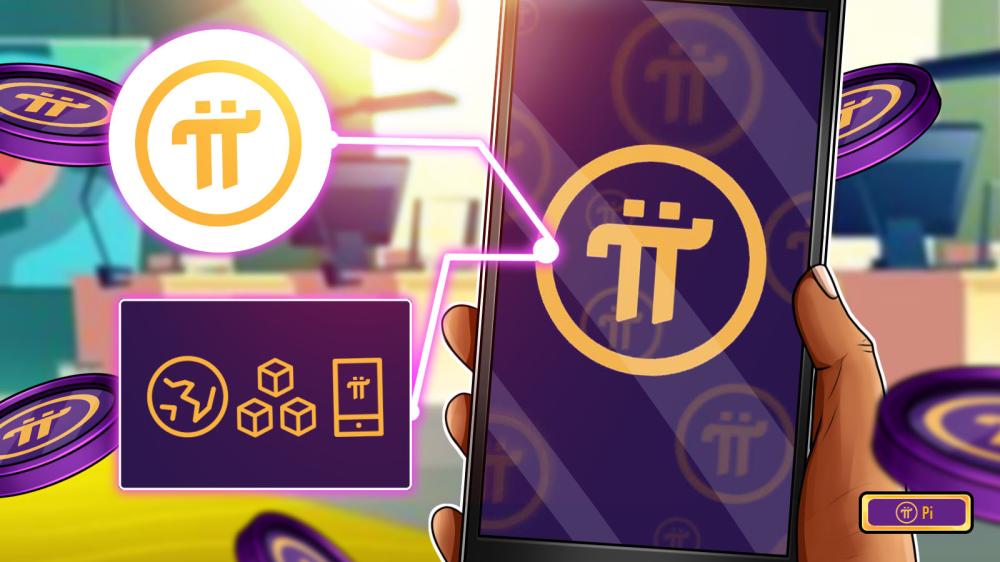Cryptocurrencies have gained significant popularity over the years, with numerous projects vying for a piece of the digital currency market. Pi Network, a relatively new entrant, has attracted attention with its unique approach to mining and user-friendly mobile application. However, the crypto market is filled with competition, and several projects are challenging Pi Network’s position. In this article, we will explore the top 10 Pi Network competitors in the crypto market, highlighting their key features and potential.
1. Bitcoin (BTC)
Bitcoin, the first and most well-known cryptocurrency, remains a significant competitor to Pi Network. As the pioneer in decentralized digital currency, Bitcoin offers a proven track record and widespread acceptance. It boasts a robust network and enjoys the support of a strong community of developers, investors, and users.
2. Ethereum (ETH)
Ethereum, the second-largest cryptocurrency by market capitalization, is a decentralized platform that enables the creation of smart contracts and decentralized applications (DApps). With its highly active developer community and widespread adoption, Ethereum presents stiff competition to Pi Network. Its ecosystem hosts a wide range of tokens and projects, making it a popular choice for decentralized finance (DeFi) and NFT applications.
3. Binance Coin (BNB)
Binance Coin is the native cryptocurrency of the Binance exchange, one of the largest cryptocurrency exchanges globally. BNB offers several utilities within the Binance ecosystem, including discounted trading fees and participation in token sales. Its popularity and utility make it a strong competitor to Pi Network.
4. Cardano (ADA)
Cardano is a blockchain platform that aims to provide a secure and scalable infrastructure for the development of decentralized applications. With a strong focus on research and peer-reviewed technology, Cardano has garnered attention for its commitment to academic rigor. Its robust features and active development make it a formidable competitor to Pi Network.
5. Ripple (XRP)
Ripple, known for its digital payment protocol, has gained traction as a viable alternative to traditional banking systems. It aims to enable fast and low-cost international money transfers, making it attractive for financial institutions. Despite facing regulatory challenges, Ripple’s established partnerships and use cases make it a noteworthy competitor.
6. Stellar (XLM)
Stellar is a decentralized platform designed to facilitate fast, low-cost cross-border transactions and enable the issuance of digital assets. With its focus on financial inclusion and partnerships with prominent organizations, Stellar has gained popularity as a blockchain-based solution for remittances and micropayments. It presents a compelling alternative to Pi Network.
7. Litecoin (LTC)
Litecoin, often referred to as the “silver to Bitcoin’s gold,” is a peer-to-peer cryptocurrency that offers faster transaction confirmation times and a different hashing algorithm. With its strong brand recognition and active development, Litecoin remains a notable competitor in the cryptocurrency market.
8. Tezos (XTZ)
Tezos is a blockchain platform that prioritizes on-chain governance and formal verification of smart contracts. By enabling stakeholders to vote on proposed protocol upgrades, Tezos aims to provide a self-amending blockchain network. Its focus on security and governance sets it apart from Pi Network and positions it as a prominent competitor.
9. Chainlink (LINK)
Chainlink is a decentralized oracle network that facilitates the connection between smart contracts and real-world data, enabling them to interact with external systems. With its secure and reliable data feeds, Chainlink has become a popular choice for DeFi applications, decentralized exchanges, and gaming platforms. Its unique value proposition makes it a significant rival to Pi Network.
10. Solana (SOL)
Solana is a high-performance blockchain platform designed to support decentralized applications and crypto-assets at scale. With its fast transaction processing and low fees, Solana has gained attention as an efficient and scalable solution. Its growing ecosystem and partnerships make it an emerging competitor in the crypto market.
Conclusion
While Pi Network has generated excitement with its user-friendly approach to mining, the crypto market is filled with formidable competitors. Bitcoin, Ethereum, and other established cryptocurrencies continue to dominate, thanks to their widespread adoption and robust networks. Additionally, newer projects such as Cardano, Binance Coin, and Solana are challenging the status quo with innovative features and strong development teams. As the crypto market evolves, it will be intriguing to see how Pi Network and its competitors adapt and differentiate themselves to attract users and investors alike. Continue Reading

















I am sending you 1π! Pi is a new digital currency developed by Stanford PhDs, with over 47 million members worldwide. To claim your Pi, follow this link https://minepi.com/daiv101 and use my username (daiv101) as your invitation code.